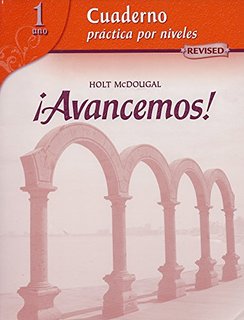
All Solutions
Page 269: Vocabulario A
1. C.
2. E.
3. A.
4. D.
5. B.
2. enferma (sick)
3. estómago (stomach)
4. pesas (wights)
5. salud (health)
You should write complete sentences to three questions.
The sentences should be simple.
**Tip:** Pay attention to the verbs that are used in the question. To write your answers, use the first-person form of those verbs and change the pronouns if needed.
– Sí, me duelen las piernas cuando camino mucho.
(Yes, my legs hurt when I walk a lot.)
Note how we used the first-person forms in our answer. The verb *caminar (to walk)* changed to *”camino.”*
You may be wondering why the verb *doler (to hurt)* isn’t changed. This is because *doler* is a reflexive verb.
In our sentence, the subject is in the plural (las piernas), so we used the plural form of *doler*, which is *”duelen.”*
When the subject is in the singular (e.g. la cabeza), we use the singular form, which is *”duele”* (e.g. Me duele la cabeza.)
We also changed the pronoun *”te”* to *”me”* because we are giving our *personal* answer.
– Sí, descanso mucho cuando estoy enfermo(a).
(Yes, I rest a lot when I am sick.)
Note how the verbs *descansar (to rest)* and *estar (to be)* are in the first person. Our results are *”descanso”* and *”estoy.”*
– Cuando nado, uso más los brazos.
(When I swim, I use more arms.)
Again, we changed the verbs *nadar (to swim)* and *usar (to use)* and got *”nado”* and *”uso.”*

